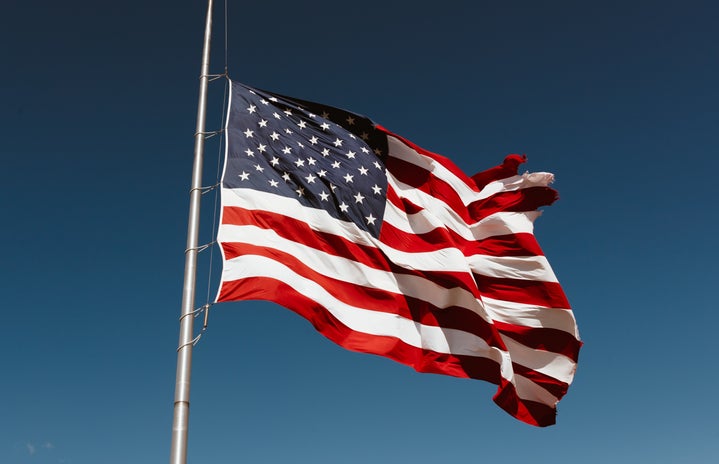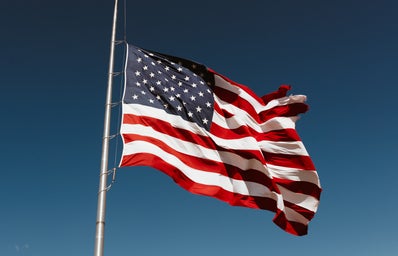On Tuesday, Sept. 10, Vice President Kamala Harris and Former President Donald Trump went head-to-head at the presidential debate for the first time at the National Constitution Center in Philadelphia.
This presidential debate is extremely crucial in the electoral process. It provides a platform for candidates to express their opinions and policies, respond to questions regarding pressing issues, address controversies, provides live fact-checking, and influences public opinion as well as voter decision-making.
The last presidential debate, held-on Jun. 27, between President Joe Biden and Former President Donald Trump, proved to be a turning point in the election cycle. The debate was particularly significant as Trump raised questions regarding the President’s age and mental acuity. It followed in President Biden’s decision to withdraw from his reelection bid, a dramatic shift in the political landscape. As a result, Vice President Kamala Harris was elevated to the top of the ticket, becoming the new Democratic nominee for President. This unexpected turn of events not only altered the dynamics of the presidential race but also heightened the anticipation surrounding the Sept. 10 debate.
So, what happened in this debate? Here are the key takeaways and important highlights:
Economy
The economy was a central topic in the debate, as it directly impacts the lives of voters every day and contributes to the nation’s overall prosperity. Economic conditions have a substantial impact on wages, job availability, and the affordability of goods and services, which in turn influences citizens’ financial well-being and quality of life.
Harris focused her primary remarks on her plan to make an “Opportunity economy.” During the debate, she presented herself as a candidate of the middle-class who intends to extend “a tax cut for those (middle and working-class) families of $6,000, which is the largest child tax credit that we have given in a long time.” She also explained her support for small businesses and first-time home buyers, planning for a “$50,000 tax deduction for small businesses” and “$25,000 in down-payment assistance for first time home buyers.”
On the other hand, Trump did not comment and was vague on having plans for the economy and Obamacare, only suggesting he had “concepts of a plan.” In the discussion on inflation, he blamed the Biden-Harris administration for the high inflation in the economy. He said, “I had no inflation, virtually no inflation. [Biden-Harris] had the highest inflation perhaps in the history of our country because I’ve never seen a worse period of time.”
There was also discussion on foreign tariffs, as Trump highlighted his administration placed tariffs on Chinese goods, declaring it boosted the economy. In response, Harris alleged that during his presidential term, he was “selling American chips to China to help them improve and modernize their military.”
Immigration
One sensationalist claim during the debate was Trump’s repeated baseless idea about Haitian immigrants in Springfield, Ohio eating pets. He responded to a question regarding immigration by saying, “They’re eating the dogs, the people that came in, they’re eating the cats,” and “They’re eating the pets of the people that live there, and this is what’s happening in our country, and it’s a shame.” ABC debate moderator David Muir, immediately fact-checked this claim saying, “the city manager in Springfield, Ohio, told the network there had been no credible reports of pets being harmed, injured or abused by people in the city’s immigrant community.”
Abortion
Abortion is undoubtably one of the most controversial topics since Trump’s Supreme Court nominees overturned Roe v. Wade.
During Tuesday night’s debate, Harris expressed her defense of abortion rights. She described how women could face extreme medical complications if they needed to travel out of state for an abortion. She spoke ardently of the offenses and immorality of abortion restrictions, “The survivor of a crime of a violation of her body does not have the right to make the decision about what happens to her body next?” Harris explained how there can also be grueling ordeals faced by financially struggling women attempting to get an abortion, as they “barely can afford to do it, and what you’re putting her through is unconscionable.” Finally, she made a truly powerful point saying, “The government, and Donald Trump, certainly should not be telling a woman what to do with her body.” Harris ended her points by stating that this belief of abortion rights is shared throughout the United States: “In every state where this issue has been on the ballot, in red and blue states both, the people of America have voted for freedom.”
Trump stated he is “not in favor of an abortion ban, but it doesn’t matter, because this issue has now been taken over by the states.” He suggested that through the overturning of Roe v. Wade and its constitutional protections, he “did a great service in doing that. It took courage to do it.” He also mentioned he “wouldn’t have to veto a federal abortion ban.” However, he also emphasized that with this change he does believe in the “exceptions in cases of rape, incest, and to protect the life of the mother.”
Yet, he struggled with clarity and dodged veto questions as he kept attempting to paint Democrats as radical by repeating the false claims that Democrats support “abortions after birth” and “executing babies.” Which were fact-checked live by ABC debate moderator, Linsey Davis, who stated “there is no state where it is legal to kill a baby after birth.”
Foreign Policy
During the debate, Harris and Trump both answered questions regarding foreign conflicts such as the Ukraine-Russia war, the war in Gaza, and the withdrawal from Afghanistan.
On Ukraine, Trump didn’t explicitly state whether he wanted Ukraine to win the war against Russia. When he was asked, rather than responding he expressed that he wants the war to stop and will urge the two countries to come to a negotiation. He stated, “What I’ll do is I’ll speak to one, I’ll speak to the other, I’ll get them together.” Trump also asserted that if he were still president, “That war would have never happened.” Alternatively, Harris made a stance and pledged she “will stand strong with Ukraine and our NATO allies.” During the debate, she continuously showcased her efforts in the Biden administration, promising to continue to aid Ukraine.
Regarding the war in Gaza, both candidates did not share detailed plans for ending the war in Gaza. Harris affirmed that “We need a ceasefire deal and we need the hostages out,” while Trump only declared that this “would have never happened” if he were still in the White House.
Harris defended the withdrawal from Afghanistan, reporting “as a result, America’s taxpayers are not paying the $300 million a day we were paying for that endless war, and as of today, there is not one member of the United States military who is an active duty in a combat zone in any war zone around the world.”
Whereas Trump stated that he told “Abdul,” who he believes is the head of the Taliban, to stop killing U.S troops. He continued the discussion by claiming he warned “Abdul” to stop by sending him pictures of his house. Trump reported that he said, “You’re going to have to figure that out, Abdul,” and claimed that for 18 months, no U.S. soldiers were killed. It was unknown who Trump was referring to because “the nominal head of the Taliban since 2016 has been Hibatullah Akhundzada.” Furthermore, he claimed that the agreement that he would’ve negotiated with the Taliban for the U.S. withdrawal from Afghanistan would have had no causalities and would’ve been better than President Joe Biden’s plan. He insisted the Biden-Harris administration has led to increased foreign issues and weakened the reputation of the United States, stating “the leaders of other countries think that they are weak and incompetent, and they are, they’re grossly incompetent.”
Gun rights
Gun rights is certainly one of the most contentious issues for Americans. Harris briefly addressed this topic, stating she and her running mate, Tim Walz, are both gun owners and they are “not taking anybody’s guns away.” She emphasized their commitment to upholding Second Amendment rights while also advocating for reasonable regulations to ensure public safety.
Final Analysis
This heated debate could be the only confrontation between Vice President Kamala Harris and former President Donald Trump in the lead-up to the upcoming presidential election. It was demonstrated that Harris aimed to navigate the challenging dual role of being an incumbent while also positioning herself as a proponent of change, all while addressing relentless attacks from Donald Trump. During the debate, Trump was subjected to repeated fact-checking for various inaccuracies and was very defensive, underscoring concerns about the accuracy of his statements.
With any luck, this recap has deepened your understanding of the dynamics and conversations that unfolded during the Sept.10 presidential debate. Through these insights, I hope you are better equipped to appreciate the nuances of the debate and its potential impact on the forthcoming electoral process.


